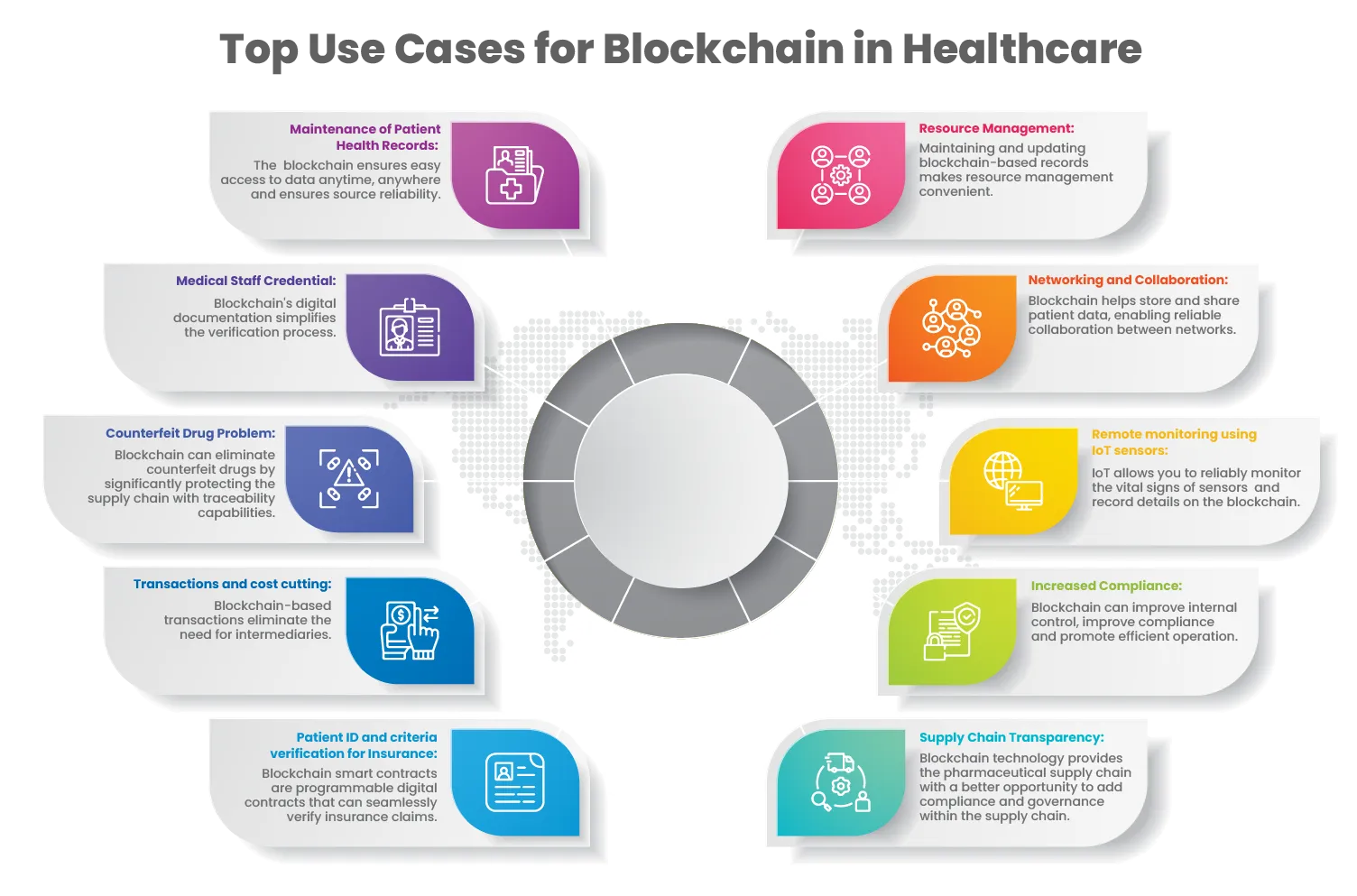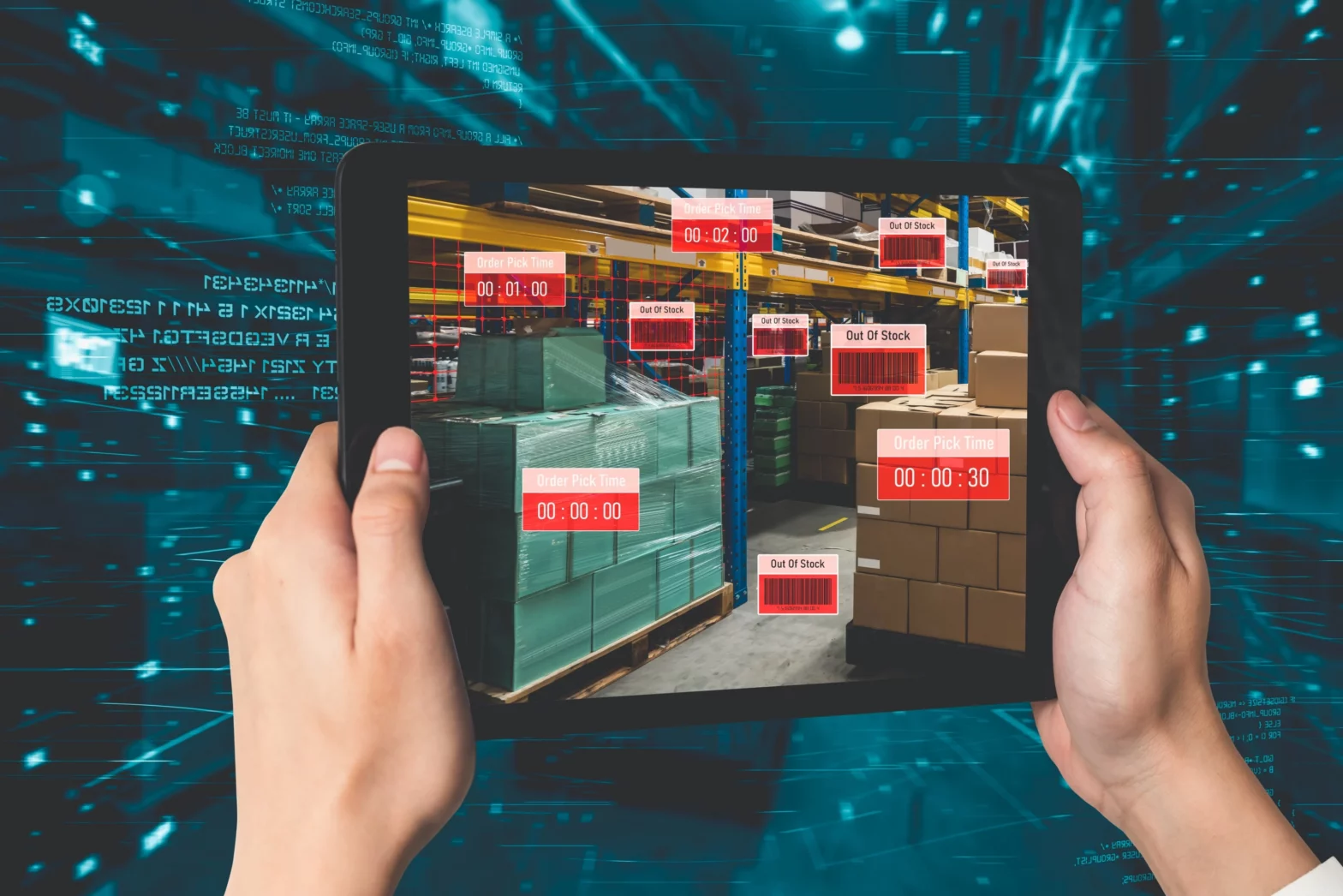The Blockchain is a decentralized digital ledger that can securely store all the manually fed data, transaction details, data obtained from various other sources including sensors, etc and make them accessible in real time. Blockchain being distributed over a network of connections, provides visibility to all parties involved in any kind of transaction and gives them control over how their data is viewed. Blockchain is gaining more and more popularity due to its benefits and use cases, that are applicable to wide range of industries around the globe. The healthcare industry is no exception!
The healthcare industry needs to carry data that is both sensitive and important, thereby needing security and transparency at the same time. This is one of the key features of blockchain in healthcare, that it provides exactly what is needed. Blockchain in healthcare industry has many use cases, some of which are discussed below along with the challenges faced by the healthcare industry.
1. Maintenance of Patient Health Records
Past health records of patients, their medication, treatment, treating practitioner,
etc, are usually stored as hard copies and the patient has to keep carrying those documents to their every hospital visit or transfer.
Solution: If all the health record data is uploaded into the blockchain, it would make it easier to access the information from anywhere at any time, also ensuring the reliability on the source. Also, since the blocks of a blockchain are encrypted, the data cannot be tampered with.
2. Medical Staff Credential Verification
As inconvenient it is with patient record documents, so it is with medical staff credentials. Verification of certificates, license, address and id proofs to ensure compliance and authenticity, is a time and energy consuming process.
Solution: With all the documents digitized and stored in blockchain, this verification process become effortless. The staff whose details must be verified could use their fingerprint or retinal scan to access their documents and thus ensuring security too.
3. Counterfeit Drug Problem
Counterfeit pharmaceutical products have been in the market for a very long time now. Counterfeit drugs not only pose a risk to the consumer’s health, but also put the genuine brand’s reputation under stake. The counterfeit drug market is estimated to be a USD 200 billion industry.
Solution: Blockchain’s Track and Trace solution can track the details of a drug right from its manufacture to retail. With this we can trace its originality or duplicity. Thus, the counterfeit of pharmaceutical products can be curbed with Blockchain traceability.
4. Transactions and Cost Cutting
Transactions are a continuous process in the healthcare sector. Medical supplies, instruments, patient and staff transactions, etc are done on a daily basis. These transactions are carried on with the involvement of trusted intermediaries that charge an extra transaction cost and also sometimes delay transactions.
Solution: Blockchain based transactions eliminate the need for such
intermediaries, thereby cutting transactional cost and time. The transactions are
quick and can be done within a few seconds or minutes across various platforms.
5. Patient id and Criteria Verification for Insurance
Medical treatments can be expensive and so patients go for health insurances. But claiming an insurance could involve verifying patient details, terms and conditions, hospital and insurance policies and the eligibility of the patient depending on the type of treatment.
Solution: These verifications can be done easily, saving time and energy, through
blockchain Smart Contracts. Smart contracts are programmable digital contracts
between two or more parties that execute the desired function, once all agreed upon characteristics are met. Hence, based on the insurance terms & conditions and patient records, insurance claims can be seamlessly verified.

6. Supply Chain Transparency
Transparency in the supply chain of healthcare industry goes a very long way in gaining customer trust and building reputation. Tracking all records of the certain product right from its manufacturing stage to the consumption level ensures this transparency.
Solution: Blockchain traceability comes to the picture, with that being said.
Blockchain’s Track and Trace solution can ensure supply chain transparency.
7. Increased Compliance
The healthcare sector is subjected to many rules and regulations from the governing bodies. Given the challenges with respect to maintenance of records, documents and other things, ensuring compliance becomes tedious. Also, there is always a possibility of error due to negligence.
Solution: With blockchain in healthcare, all the transactions and records are stored in real- time and are accessible. Thus, increasing transparency and compliance.
8. Remote Monitoring using IoT Sensors
Monitoring patient vitals from time to time and keeping a record of the same requires a team of paramedics to be continuously on field. Using manpower for something as little as this is not worth the time and energy.
Solution: With IoT sensors, the vitals can be conveniently monitored and recorded and the details can be stored in blockchain along with other patient records. This allows the manpower to be delegated to more important assignments.
9. Networking and Collaboration
Collaborating with pharmaceuticals, labs and other resource providers is an integrate part of the healthcare industry. Collaborations though, are possible only with trust between the parties. Hence contracts are issues.
Solution: With Blockchain’s Smart Contracts, parties can draft a programmable
contract that gets executed once the agreed upon terms are met. This builds the
trust within parties and ensures fair business.
10. Resource Management
Resources, not just in terms of materials, but also manpower and skill set, need to be managed for smooth operations.
Solution: With blockchain based record maintenance and update, management of
resource becomes convenient.
MSRvantage’s blockchain based solutions benefit the healthcare industry widely.
Blockchain ensures elimination of third parties in transactions, reduction of medical errors and builds trust with the consumers. Blockchain is the future of healthcare sector.
Recent posts


Protecting Intellectual Property with Blockchain
Combating illegal commerce and safeguarding your brand's existence may be a difficult, time-consuming, and sometimes challenging undertaking in the current era of rapid globalization. The
Read more 


How Can Customer Data Help Businesses Profile and Personalise Rewards and Loyalty?
Loyalty programs have a significant effect. Therefore, the challenge is how to use a reward program to boost consumer loyalty effectively. How much of an
Read more 


Supply Chain Digitalization and Asset Management
Supply chains are gradually becoming digitalized. Asset and inventory management, as well as keeping track of and updating it, are requirements for every established organization.




